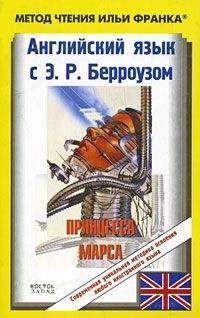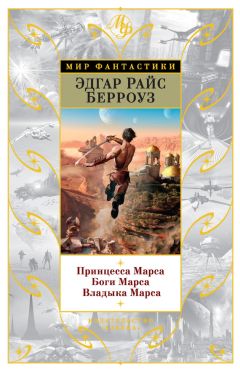ferocious [fq'rouSqs], countenance ['kauntInqns], singularly ['sINgjulqlI]
The iris of the eyes is blood red, as in Albinos, while the pupil is dark. The eyeball itself is very white, as are the teeth. These latter add a most ferocious appearance to an otherwise fearsome and terrible countenance, as the lower tusks curve upward to sharp points which end about where the eyes of earthly human beings are located. The whiteness of the teeth is not that of ivory, but of the snowiest and most gleaming of china. Against the dark background of their olive skins their tusks stand out in a most striking manner, making these weapons present a singularly formidable appearance.
Most of these details I noted later (большую часть из этих деталей я заметил позднее), for I was given but little time to speculate on the wonders of my new discovery (так как мне дали слишком мало времени, /чтобы/ поразмыслить о чудесах моего нового открытия; to speculate — размышлять, раздумывать). I had seen that the eggs were in the process of hatching (я видел, что яйца находились в процессе вылупливания), and as I stood watching the hideous little monsters break from their shells (и пока я стоял /и/ смотрел, как ужасные маленькие чудовища прорываются из своих оболочек) I failed to note the approach of a score of full-grown Martians from behind me (я не сумел заметить, как ко мне сзади приближается два десятка взрослых марсиан; score — счет; два десятка).
hatching ['hxtSIN], approach [q'proutS], hideous ['hIdIqs]
Most of these details I noted later, for I was given but little time to speculate on the wonders of my new discovery. I had seen that the eggs were in the process of hatching, and as I stood watching the hideous little monsters break from their shells I failed to note the approach of a score of full-grown Martians from behind me.
Coming, as they did, over the soft and soundless moss (приближаясь так, как они это делали, по мягкому и поглощающему звуки мху: «беззвучному мху»), which covers practically the entire surface of Mars (который покрывает практически всю поверхность Марса) with the exception of the frozen areas at the poles (за исключением замерзших областей у полюсов) and the scattered cultivated districts (и разрозненных обработанных участков; scattered — разбросанный; разрозненный; to scatter — разбрасывать, раскидывать), they might have captured me easily (они легко могли схватить меня), but their intentions were far more sinister (но их намерения были гораздо более зловещими). It was the rattling of the accouterments of the foremost warrior which warned me (и только бряцание оружия переднего воина предупредило меня; to rattle — грохотать, греметь; accouterments — воен. снаряжение; foremost — передний, первый).
cultivated ['kAltIveItId], sinister ['sInIstq], accouterment [q'ku: tqmqnt]
Coming, as they did, over the soft and soundless moss, which covers practically the entire surface of Mars with the exception of the frozen areas at the poles and the scattered cultivated districts, they might have captured me easily, but their intentions were far more sinister. It was the rattling of the accouterments of the foremost warrior which warned me.
On such a little thing my life hung (от такой ничтожной вещи зависела моя жизнь; to hang — вешать; to hang on smth. — зависеть от чего-либо) that I often marvel that I escaped so easily (что я часто поражаюсь тому, что я так легко спасся; to marvel — дивиться, изумляться). Had not the rifle of the leader of the party swung from its fastenings beside his saddle (если бы ружье руководителя отряда не покачнулось в своих креплениях сбоку от седла; to fasten — связывать, скреплять; fastening — деталь крепления) in such a way as to strike against the butt of his great metal-shod spear (таким образом, что оно ударилось о конец его большого копья с металлическим наконечником: «обшитого металлом»; butt — торец; to shoe — обувать; подбивать, обшивать), I should have snuffed out (то я бы погиб; to snuff out — умереть; to snuff — нюхать табак; втягивать носом; вдыхать) without ever knowing that death was near me (так никогда и не узнав, что смерть была рядом со мной). But the little sound caused me to turn (но этот слабый звук заставил меня повернуться), and there upon me, not ten feet from my breast (и там, /нацеленное/ на меня, не далее чем в десяти футах от моей груди), was the point of that huge spear (было острие этого огромного копья), a spear forty feet long (копья длиной сорок футов), tipped with gleaming metal (с наконечником из сверкающего металла; to tip — приставлять наконечник; tipped — с наконечником), and held low at the side of a mounted replica (и удерживаемое низко сбоку конной копией = всадником, который являл собой точную копию; replica — точная копия) of the little devils I had been watching (маленьких дьяволят, которых я наблюдал).
fastening ['fRsnIN], watching ['wOtSIN], replica ['replIkq]
On such a little thing my life hung that I often marvel that I escaped so easily. Had not the rifle of the leader of the party swung from its fastenings beside his saddle in such a way as to strike against the butt of his great metal-shod spear I should have snuffed out without ever knowing that death was near me. But the little sound caused me to turn, and there upon me, not ten feet from my breast, was the point of that huge spear, a spear forty feet long, tipped with gleaming metal, and held low at the side of a mounted replica of the little devils I had been watching.
But how puny and harmless they now looked (но какими крошечными и безобидными они теперь выглядели; puny — маленький, тщедушный) beside this huge and terrific incarnation of hate (рядом с этим огромным и ужасающим воплощением ненависти;incarnation — воплощение, олицетворение), of vengeance and of death (мести и смерти). The man himself, for such I may call him (сам мужчина, ибо так мне стоит называть его), was fully fifteen feet in height (был ростом целых пятнадцать футов) and, on Earth, would have weighed some four hundred pounds (и на Земле /он/ весил бы около четырехсот фунтов). He sat his mount as we sit a horse (он сидел на своем верховом животном так, как мы сидим на лошади), grasping the animal's barrel with his lower limbs (обхватив корпус животного нижними конечностями; barrel — бочка; зд. — корпус), while the hands of his two right arms (в то время как кисти его двух правых рук) held his immense spear low at the side of his mount (держали его огромное копье на небольшой высоте у бока животного); his two left arms were outstretched laterally (его две левые руки были вытянуты в стороны;laterally — в стороны, вбок) to help preserve his balance (чтобы помочь сохранять равновесие), the thing he rode having neither bridle or reins of any description for guidance (так как существо, на котором он ездил, не имело ни узды, ни поводьев какого-либо вида для управления; bridle — узда; description — описание; вид; to ride — ехать верхом).
vengeance ['venG(q)ns], outstretch ['aut'stretS], guidance ['gaId(q)ns], description [dIs'krIpS(q)n]
But how puny and harmless they now looked beside this huge and terrific incarnation of hate, of vengeance and of death. The man himself, for such I may call him, was fully fifteen feet in height and, on Earth, would have weighed some four hundred pounds. He sat his mount as we sit a horse, grasping the animal's barrel with his lower limbs, while the hands of his two right arms held his immense spear low at the side of his mount; his two left arms were outstretched laterally to help preserve his balance, the thing he rode having neither bridle or reins of any description for guidance.
And his mount (а его верховое животное)! How can earthly words describe it (как можно земными словами описать его)! It towered ten feet at the shoulder (на уровне плеча его высота достигала десяти футов; to tower — выситься, возвышаться; tower — башня); had four legs on either side (оно имело по четыре ноги с каждой стороны); a broad flat tail, larger at the tip than at the root (широкий плоский хвост, более широкий на конце, чем у основания; root— корень, основание), and which it held straight out behind while running (и который он держал ровно вытянутым позади во время бега; straight — по прямой линии; straight out— прямо); a gaping mouth which split its head from its snout to its long, massive neck (и разинутую пасть, которая надвое разделяла его голову от морды до длинной, массивной шеи; to gape — широко разевать рот; snout— рыло; большой нос; to split— расщеплять, раскалывать).
Like its master, it was entirely devoid of hair (подобно своему хозяину, он был напрочь лишен волос), but was of a dark slate color and exceeding smooth and glossy (однако он был темного грифельного цвета, чрезвычайно гладкий и лоснящийся; slate — аспидный сланец; грифельная доска; цвет сланца). Its belly was white (его живот был белым), and its legs shaded from the slate of its shoulders and hips to a vivid yellow at the feet (а цвет его ног менялся от грифельного у плеч и бедер до ярко-желтого у ступней; to shade — затенять; незаметно переходить в другой цвет). The feet themselves were heavily padded and nailless (сами ступни были с толстыми подушечками и без ногтей; pad— подушка; padded — пухлый), which fact had also contributed to the noiselessness of their approach (и это обстоятельство также способствовало бесшумности их передвижения), and, in common with a multiplicity of legs (и в сочетании со множеством ног), is a characteristic feature of the fauna of Mars (является характерной чертой фауны Марса). The highest type of man and one other animal (высший тип человека и еще одно другое животное), the only mammal existing on Mars (единственное млекопитающее, обитающее на Марсе), alone have well-formed nails (только они имеют хорошо сформированные ногти), and there are absolutely no hoofed animals in existence there (и там абсолютно не существует никаких копытных животных; existence— существование; to be in existence — существовать; hoof — копыто).
either ['aIDq], snout [snaut], contribute [kqn'trIbjHt], multiplicity ["mAltI'plIsItI]
And his mount! How can earthly words describe it! It towered ten feet at the shoulder; had four legs on either side; a broad flat tail, larger at the tip than at the root, and which it held straight out behind while running; a gaping mouth which split its head from its snout to its long, massive neck.
Like its master, it was entirely devoid of hair, but was of a dark slate color and exceeding smooth and glossy. Its belly was white, and its legs shaded from the slate of its shoulders and hips to a vivid yellow at the feet. The feet themselves were heavily padded and nailless, which fact had also contributed to the noiselessness of their approach, and, in common with a multiplicity of legs, is a characteristic feature of the fauna of Mars. The highest type of man and one other animal, the only mammal existing on Mars, alone have well-formed nails, and there are absolutely no hoofed animals in existence there.
Behind this first charging demon trailed nineteen others (следом за первым нападающим демоном тянулись девятнадцать других), similar in all respects (подобные /ему/ во всех отношениях), but, as I learned later, bearing individual characteristics peculiar to themselves (но, как я узнал позднее, имеющие индивидуальные характеристики, свойственные только им); precisely as no two of us are identical (точно так же, как не бывает двух из нас, совершенно одинаковых) although we are all cast in a similar mold (хотя все мы созданы по одному подобию: «отлиты по схожей форме»; to cast — лить, отливать; similar — похожий, подобный; mold — форма). This picture, or rather materialized nightmare (эта картина, или скорее, материализовавшийся кошмар), which I have described at length (которую я так подробно описал; at length — детально, подробно), made but one terrible and swift impression on me as I turned to meet it (произвела на меня лишь единое ужасающее и молниеносное впечатление, когда я повернулся, и она предстала передо мной; swift— быстрый; незамедлительный).



